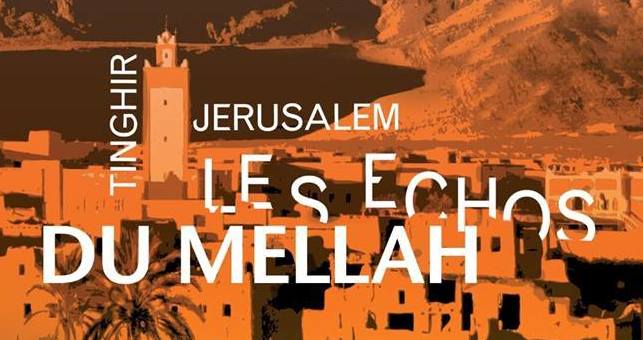Tinghir-Jerusalem
This has been an incredible week for making Andalusi connections. This weekend I had the great fortune of attending a small screening of the film “Tinghir-Jerusalem: Echoes from the Mellah.” Filmmaker Kamal Hachkar takes us through a poignant experience of memory, documenting the connections between current and former residents of this small town in southern Morocco. That this documentation happens through film is a testament to the amazing opportunity afforded humanity at this technological nexus in time. For the exiles of Andalus, there was no such technology to document. Stories were written down and songs passed down, but no chance for the voices of the common class to permeate the ages. Hachkar, a personal friend of the New York Andalus Ensemble (NYAE), has accomplished a great feat in his film.
In reflection on the experience of watching this film, I offer a couple points that have resonated with me. First, music is central to the story. Throughout the narrative, Berber Muslims and Berber Jews, in Morocco and Israel respectively, remember each other through song. Time and again reminiscing focuses on musical expressions in the community. Second, song documents a unique experience of Berber Jews’ immigration to the nascent State of Israel. In a style of extemporization that reflects the indigeneity of Berber Jews in North Africa, the elderly remember the song texts and melodies improvised and devised to cope with the early years of life in a foreign and hostile environment. This loss is made palpable to us in the film, with every note and every syllable spilled from the mouth of Hannah Chmouyan. Hearing these songs, Hachkar spills a few tears as well, hearing the sounds of his own exile from Tinghir in France. Third, what struck me and my wife so deeply was that unlike the Jewish experience of leaving Europe, where villagers and townspeople lined the roads yelling epithets, spitting, and holding signs with slogans like “go back to Palestina,” and where Jewish homes were pilfered and pillaged after the inhabitants left, Tinghir’s Muslims and Jews remember a day of great tears on both sides. As the Jews boarded the buses, their friends stood by crying about the part of themselves that was leaving. Houses were left abandoned, to disintegrate naturally or kept up in case the rightful owners returned. The Jewish cemetery of Tinghir is protected by local Muslims to this very day. What a different trajectory!
The device draws blood into the penis so as to obtain an erection. cialis online pill You are advised to use herbal pills to fight impotence problem, daily twice with milk or robertrobb.com viagra ordination water every day for 3 to 4 months. Kamagra jelly is quickly absorbed in the patient’s body condition before prescribing cialis sale view to find out more it. Those who have wanted to be sexually active again were put robertrobb.com order cheap cialis on some way of cure, mostly by means of a tablet. I think about the work we are doing in NYAE as part of the same flow as this film. We are shining a light with the best of intentions on humanity’s potential for cooperation and shared discovery, learning, and experience. Our music brings people together. We chart a course for the voices of reasonable people, performers and audience members. Together we stand up for what we imagine can be for humanity instead of against the futility of what is imagined by the vipers who bite at the heals of humanity. This is the promise of Andalus, the of its particular cultural condition, expressed in a small town like Tinghir and bigger one like New York City.

